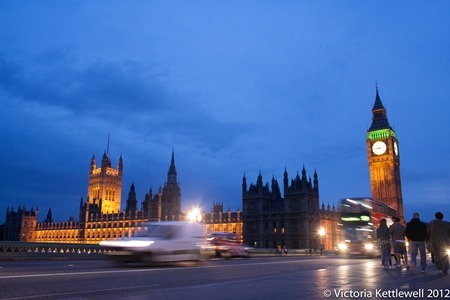Also posted on Redbrick.
Monday 12 August 2013
Cameron Demands Complacency on Fracking
Also posted on Redbrick.
Friday 19 July 2013
A Tory Guide to Getting Quick Cash
 Image by Palestine Solidarity Campaign
Image by Palestine Solidarity Campaign
In times of economic crisis, the Conservatives usually find themselves in Government (cheekily proclaiming themselves the ‘natural party’) and with the task of cutting the deficit and balancing the books. This is a task they have long developed a strategy for – if you can’t cut the services, privatise them – easy. Unsurprisingly, this is exactly the kind of strategy that has been in place since the 2010 General Election win.
They are a party of supposed economic credibility; they can decrease the expenditure and debt of the country. But the tactic of privatisation is just an easy way of getting quick cash; if you can sell something for a good enough price, you’re going to get the money much quicker than if you persevered and waited for the profit (if there even is one) to add up. Take some examples that have come out recently: student loans debt, Royal Mail, blood plasma and, more recently, social services. Here we have a wide range of government-provided but publicly-funded services that are part of the majority of society’s everyday lives. These institutions arguably provide the backbone of UK stability and health, but the government is proposing to sell them off to possibly reckless profit-orientated major corporations.
The latter case, the idea of privatising the social services, is simply abhorrent. These services help the most vulnerable children in society, protecting them from harm and helping to enable themselves to get a better lifestyle. Whilst publicly run, this is exactly the kind of service the government should be funding and providing; a government should be concerned about the welfare of its paying citizens and working on behalf of its citizens. To grant this service to a major corporation is to ignore the fact that most companies have a primary interest in raising as much money as they can as quickly as they can. As long as they provide a legally compliant service, that’s as high as they will aim, whilst asking for extortionate price. We are only able to hope that, if the sale does indeed go ahead, that the resulting managers of the social services aren’t of detriment to those who desperately need them.
This isn’t just a made-up negative judgement; it’s fact. We saw earlier this week how security companies such as Serco and G4S have been overcharging the government and, thus, the public for the installation and monitoring of security tags on offenders. Our train providers are among the most expensive in Europe. And, there’s the ever-growing problem of companies moving abroad to rake in cheap labour, destroying jobs back in the UK. In a capitalist economy, it should come as no surprise that corporations only exist to make as much money off their consumer as they can get away with. They may not even care how their services are used, only that they are gaining some money in the process. Take for example, the reports that Palestinian children are being held and, allegedly, tortured, in G4S prisons in Israel. They claim they are not breaking “international law” but surely their actions are still immoral.
But this description can surely be applied to the Tory government too. Their strategy of making cuts and selling companies is simply a way of getting as much money back as they can almost ignoring the detrimental side-effects it may have on society. Meanwhile, they will report that borrowing has fallen, the deficit has fallen, and the Government is recovering the UK’s economy. Is this really the case or just an illusion?

